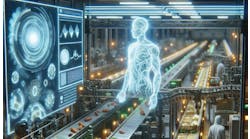In “Life on the Mississippi,” Mark Twain writes about how riverboat pilots managed to unionize. In those days, piloting the Mississippi River was one of the most demanding professions in America. Not only did pilots have to memorize every bend, sound, shallow, sandbar, large rock, etc., between St. Paul and New Orleans; they had to keep abreast as these features changed, as Twain put it, like “a mountain of butter in the hottest corner of the tropics.”
Riverboat owners tried their best to keep the union out, but the pilots developed an irresistible gambit. They formalized a system of sharing written reports, stored in lockboxes to which only union members had keys, about conditions on the river. As a result, boats piloted by union men suffered far fewer accidents; the contrast with non-union boats was so great that the industry’s underwriters forced the owners to accept the union.
What we have here is a 19th-century, pen-and-ink example of a blockchain devoted to safety.
The analogy occurred to me as I listened to a panel discussion about blockchain at Food Safety Consortium, held in November in suburban Chicago. The Mississippi riverboat pilots’ union, and its system of sharing safety information, paralleled modern food-safety blockchains in crucial aspects:
Vital data is secured, unchangeable, and accessible only within a restricted network. “When you have your digital transactions and the data is immutable, now you have a transparency that you never had before, because you can trust that information,” said Nigel Gopie, global marketing leader for IBM Food Trust. “With the blockchain world, you can actually share this information, because you have one book of business.”
The player with the greatest liability pulls demand for the system across the supply chain. Just as the riverboat insurance companies forced acceptance of the pilots’ union because they had the most to lose, so will the customer-facing entities—the grocery stores and restaurants—inspire their suppliers to use blockchain.
“It’s a pull from the consumer in the retail space,” said Allan Young, co-founder of Pavocoin, a provider of blockchain services for agriculture. “It’s a pull from the restaurants that want to offer that sort of transparency.”
The costs of safety can be passed on to consumers. Twain doesn’t go into this, but I’m guessing that if passengers boarding a riverboat had been asked, “Should the pilot paid a little more if it decreases the chance that the boat will run aground or sink?” they would have said yes—or maybe, “What kind of tomfool question is that?”
The same dynamic applies with food safety. Panelist Angela Fernandez, a VP with GS1 US, asked if she thinks consumers would pay more for a blockchain-enabled safety certification, said, “I would be willing to say that they probably would. I would also just note that we’ve already seen industries take on some costs in order to provide transparency to the consumer in the retail space. We’ve got to figure out how to start leveraging these technologies, sharing the costs around the supply chain in order to better our business and ultimately deliver to the consumer.”
In any case, safety trumps cost. The boat owners didn’t want unionized pilots for the same reason many businesses resist unions: They didn’t want to pay higher salaries. But having boats not sink or blow up turned out to be more compelling.
So it is with food safety. As one questioner in the audience, a man who identified himself as a Cargill employee, put it: “The discussion around ROI is ridiculous. The ROI is, you’re going to save a life. The ROI is, you’re going to prevent some foodborne disease.”
Enhancing safety through a secure chain of information made the riverboat pilots’ union, in Twain’s words, “the compactest, the completest, and the strongest commercial organization ever formed among men.” That peak, ironically, lasted only a few years, due to the advent of the railroads and other factors.
But the food chain is eternal. People no longer need riverboats to get up and down the middle of the country, but they’ll always need to eat. And they’ll need their food to be safe.


